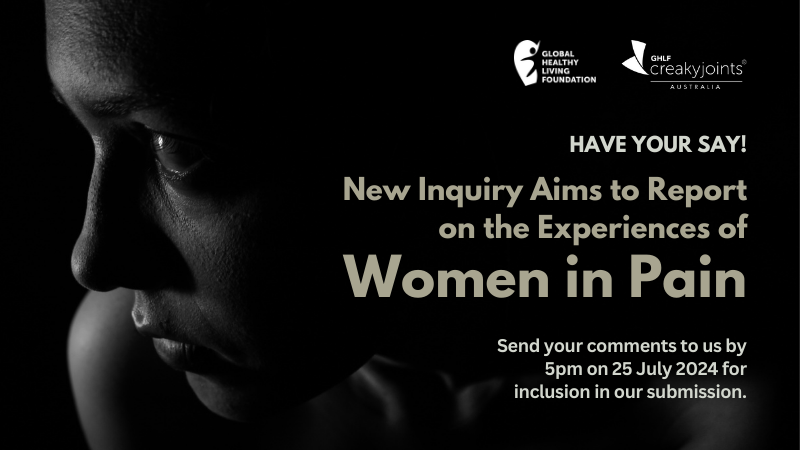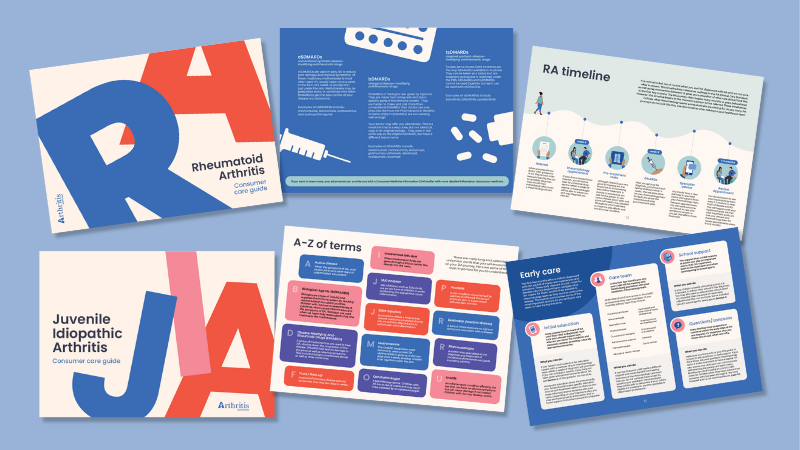Article updated 29 January 2019
Are you tired of sharing your medical history each time you see a new healthcare provider? Have you ever arrived at a doctor’s appointment to discover that your test results hadn’t come through? Do you know when you last had a tetanus shot?
Wouldn’t it be great if all your health records were held on a single database that you could access and control?
Until a few years ago, that hope was just a dream for many of us. Now, My Health Record is a reality, and you need to make a very important decision about whether you want to be part of it by 31 January 2019.
What exactly is My Health Record?
My Health Record is an online platform created by the Australian Government and operated by the Australian Digital Health Agency (ADHA to store a summary of your key health information in one place. This means you and the healthcare providers you select can view your health information securely online from any device at any time.
Your record can be used to store information such as your medications, allergies or conditions, emergency contacts or pathology results. At your medical appointments, your doctor can see all your information at a glance, including information added by other providers.
The My Health Record (MHR) platform has existed for some years as an “opt-in” option for Australians, so you may already have a record with some information attached. Now, if you don’t already have a MHR, one will be created for you unless you opt out by the 31 January deadline.
If you do already have a MHR, or if you allow one to be created for you and then change your mind later, you can opt out at any time. You can also have a MHR and simply leave it there for providers to use as they need to. Or you can elect to opt out of certain options, restrict who can access your records, and set up unique passwords.
Nothing Is Without Risk
We at CreakyJoints Australia believe that the MHR system will benefit all Australians and that everyone should have a record set up for them by default. We acknowledge that many people have concerns about the system, such as the level of data security, the accuracy of the data and that some people may find it hard to access. However, we feel that these concerns are already being mitigated through legislation, sound management and public education.
The Consumers Health Forum of Australia recently conducted a series of six webinars that explored the MHR platform in detail. The webinars featured expert panels selected from a range of health professionals, government and Australian Digital Health Agency representatives, consumers and more. The views expressed were quite mixed and were given equal respect. If you’d like to get an overview of the MHR system so you can make an informed choice before the deadline, we suggest watching at least the first two webinars.
It is human nature to fear the unknown and yet to accept some everyday risks without question. Just over a century ago, many people were frightened to ride in a car. Today, we think nothing of travelling in a tonne or more of metal at high speeds with other tonnes of metal all around us. Millions of people die every year in cars, but we believe the benefits outweigh the risks so we keep using them.
We use the same “risks versus benefits” approach when making decisions about health treatments. Among arthritis patients, for example, it’s common to risk side effects from medication in an effort to reduce the risk of disease flares or permanent damage as we believe these benefits outweigh any potential risks of treatment.
Of course, MHR is not without its risks, but there will never be a system like this that is 100 per cent foolproof. Waiting for one to magically appear will cause unnecessary delays and detract from optimal patient care. Currently, our health records are scattered in countless locations and formats. Some are still handwritten in manila folders and sitting on desks where anybody could pick them up. Many are still sent via fax machine! As we approach 2019, it’s time to embrace and benefit from technology that allows for more uniform and secure storage.
Australia’s digital security laws are some of the toughest in the world. Here are the important facts you should know about MHR security laws (many of which were added or updated in November 2018):
- You can add a PIN code to your record and keep it as private as your bank PIN.
- Only the healthcare provider organisations involved in your care and who are registered as MHR System Operators are legally allowed to access your record. They need to use conformant clinical software containing an authenticated digital certificate to access the system. This means Joe next door can’t just log in and read up on you.
- The revised laws make it clear that the MHR system cannot be privatised or used for commercial purposes.
- When a child turns 14, their authorised representatives, usually their parent/s or guardian/s, will automatically be removed from being able to access their child’s record. If the young person would like a parent or guardian or other trusted person to have access to their record, they can add them as a nominated representative.
- The ADHA will no longer be obliged to notify people of certain decisions if doing so would put another person at risk. In addition, parents subject to a court order, where they do not have unsupervised access to their child, or who pose a risk to the life, health and safety of the child or another person will not be eligible to be an authorised representative.
- You can elect to have certain information or documents excluded or permanently deleted from your record.
- The option to cancel your entire record was introduced on 24 January 2019. Cancelled records will be fully deleted from the system and all backups and deleted information won’t be able to be recovered
- Law enforcement and government agencies cannot access information without your consent or an order from a judicial officer. The only government agencies that can access the MHR system are the ADHA, the Department of Health and the Chief Executive of Medicare.
- No-one is permitted to access, or ask you to disclose, any information within your My Health Record for insurance or employment purposes.
- The principles contained within the MHR framework to guide the secondary uses of data will become law. A Data Governance Board will be established to approve the release of any data in line with these laws. The new laws also permanently remove the ability of insurers to apply for access to My Health Record data for the purposes of research.
- If you wish, you can allow others, such as a partner, family member or other trusted friend, to access your record by making them a nominated representative.
- The severe penalties incurred for inappropriate or unauthorised use of MHR have been further increased. All third party access to data is heavily safeguarded through legislation.
We already share lots of detailed information about our health online, either without knowing or without caring that we’re doing it. Hands up if you use a Fitbit, a blood glucose monitor app or an online personal training program. What about Google or Facebook? Did you allow your personal data to be shared with the service provider? Did you check the fine print to see who they might share it with? Health professionals may already be sharing your data with researchers, too. They just may not have told you about it.
So, there will be risks. That’s a given. However, we strongly believe that the risks around the MHR platform are being, and will continue to be, managed and mitigated at a world standard. The greater risk lies in NOT having a record.
Will People Be Too ‘Lazy’ to Opt into MHR?
We surveyed members of our CreakyJoints Australia Patient Council to help determine our stance on this issue. As one member said:
“To get something as huge as this to work effectively it needs to have the numbers. People are generally lazy with their health so (having a MHR) is best in my opinion as some people may not get around to doing it.”
Journalist Crispin Hull agrees. In his article for The Sydney Morning Herald, My Health Record opt-in and opt-out arguments miss the point, he said:
“If people are allowed to opt out or fail to opt in, the database would become biased. In particular, socially disconnected and disadvantaged people are unlikely to opt in and careful, fretful people would opt out. The remaining database would then not be reflective of the whole population.”
To be fully effective, the majority of Australians need to have their own MHR and the majority of relevant health practitioners need to be using it regularly. That’s why we believe the opt-out system is the answer.
MHR Will Make Our Health System More Efficient
My Health Record will save all users lots of time and energy. For example, GPs and pharmacists will be able to see what medications you are currently on so they can start helping you right away. It will help reduce medical errors, increase vaccination rates and streamline communication between your healthcare providers.
Say you have rheumatoid arthritis. Wouldn’t it be nice if your rheumatologist uploaded a note saying that you can’t have live vaccines because you are on a biologic medication or that you use codeine medications for pain management? As another CreakyJoints Australia Patient Council member put it:
“I can’t count the number of times I have had to be the messenger between doctors or have unnecessary extra tests because the results weren’t available for all to see. So it will save money, time and frustration. Because my health condition is so complex, this trumps any security issues that ‘may’ be there.”
There is a bigger picture, too. MHR forms one part of Australia’s National Digital Health Strategy, which is managed by the ADHA.
The National Digital Health Strategy provides a framework to plan and manage an integrated digital health network across Australia. The strategy also covers the provision and management of telehealth systems, education and support for all system users, digital dispensing of prescriptions, integration of third-party health apps and much more.
You can learn more about the strategy in the ADHA document, Safe, Seamless and Secure: Evolving Health and Care to Meet the Needs of Modern Australia.
MHR Is Not Just for ‘Sick People’
MHR benefits people of all ages throughout their lifetime. For example, research for the National Digital Health Strategy showed:
- A healthy pregnancy usually includes 15 to 20 separate encounters with health care services.
- Hospital admission for anaphylaxis has increased five fold in last decade in 1 to 4-year-olds.
- 18 per cent of aged care residents experienced a missed or significantly delayed dose of their medicine within 24 hours of discharge from hospital.
All of these figures could be significantly reduced if people’s health data was more easily available to providers. Anyone can end up in emergency. Without fast access to your information, life and death decisions could be delayed while doctors wait to find out more about you.
Notably, your deidentified data can be used (with your permission) to help inform health research and future healthcare policies, which benefits the whole community. Also, the more efficient the healthcare system, the more cost-effective it is. Currently wasted funds could be better directed into research and better support services.
While we know there are issues to iron out, My Health Record will save lives. Maybe yours.
What Can You Do Now?
These are your options:
- Opt out of the My Health Record system before the deadline
- Have a My Health Record and leave it alone
- Have a My Health Record and opt out later
- Have a My Health Record and self-manage it
Which will you choose?
Further resources




